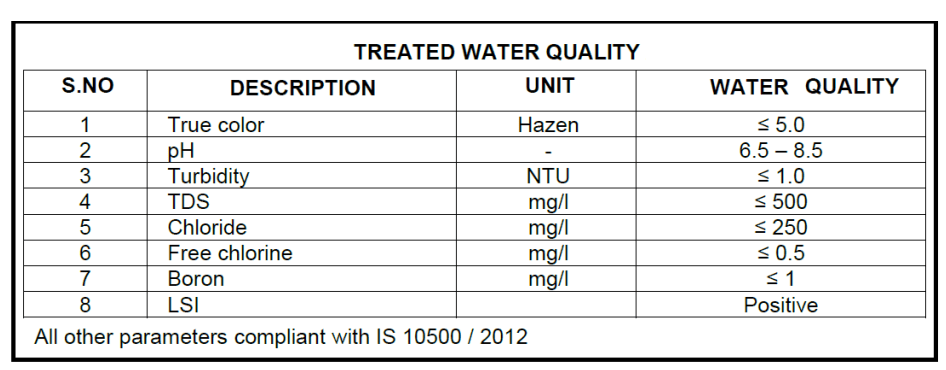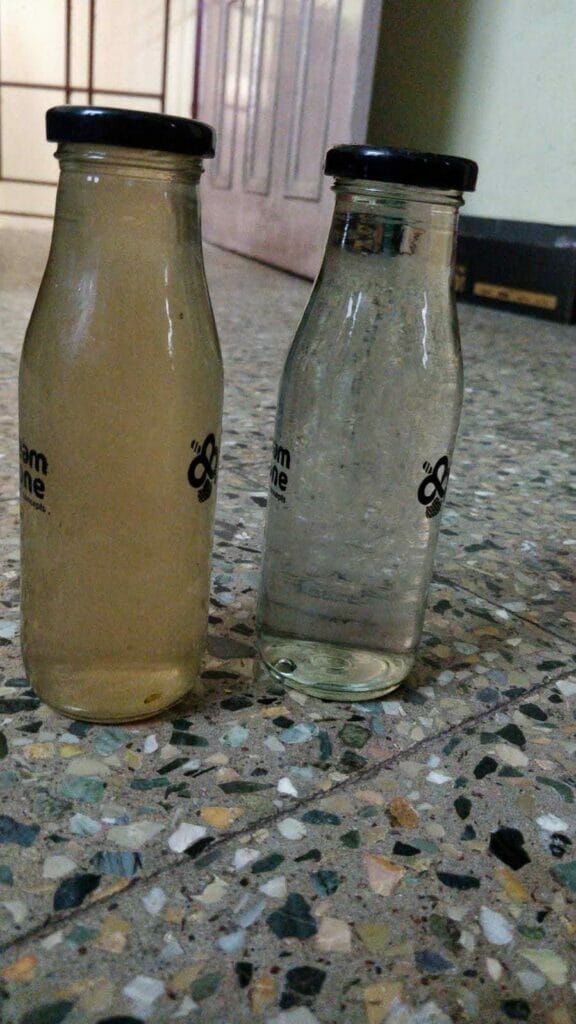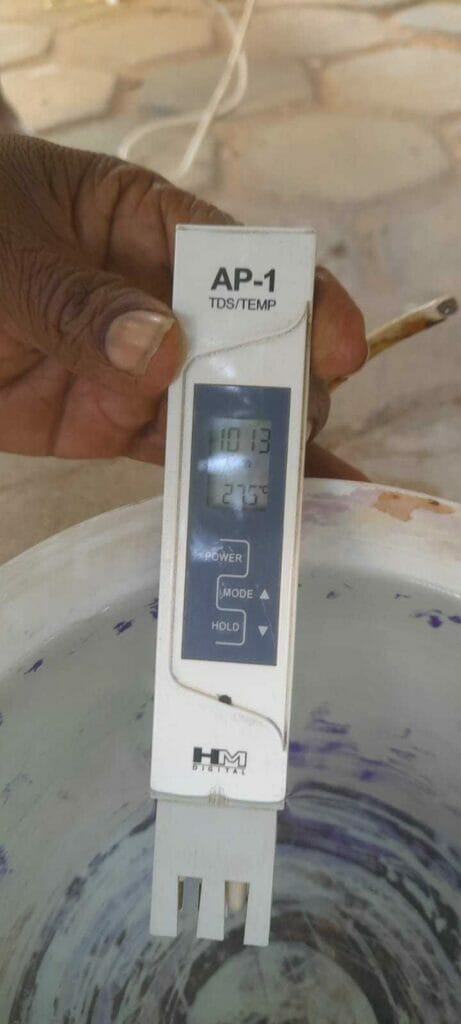“Why should we buy water from outside, if we are paying water tax to Metro Water for water supply?” asks S Bharathi, a resident of Besant Nagar. She gets water from the Nemmeli desalination plant but the water supplied is not potable.
Residents have flagged various issues with the water being supplied from the plant for many years but with little recourse.
The Nemmeli desalination plant has been operational since 2013 and supplies water to the southern parts of the city. The areas it covers include Sholinganallur, Neelangarai, Injambakkam, Karappakkam, Semmenchery, Thoraipakkam, Perungudi, Kottivakkam, Palavakkam, Thiruvanmiyur, Velachery, Taramani, Pallipattu, Adyar, Besant Nagar, Nandanam, MRC Nagar, Raja Annamalai Puram and Mylapore.
In a desalination plant, seawater goes through a reverse-osmosis process through several semi-permeable membranes at extremely high pressure. The water that comes out of the membrane is expected to be free of the salt and other undesirable substances in the seawater.
High turbidity and TDS in water from desalination plant
“We used to get water from Redhills and the local Besant Nagar well before we started receiving water from the Nemmeli desalination plant. The water used to be very clear, and we used it for cooking and drinking,” says Bharathi about the water supply before the desalination plant.
“But the water from the desalination plant is very turbid and brown. This has been the situation for a decade. There is a huge concentration of suspended particles. If we store the water in a container, it takes two days for the suspended particles to settle and you would be able to see the muck. So, the water is far from potable. We would get a sore throat if we consume the water even after boiling,” says Bharathi, who has stopped using the water from the desalination plant.
Jayanthi Premchandar of Thiruvanmiyur highlights that the water from Nemmeli desalination plant has high TDS levels.
“Currently, the TDS of the water is between 900 ppm to 1000 ppm,” says Jayanthi.
The treated water from the desalination plant must have a TDS below 500 ppm.
TDS refers to Totally Dissolved Solids in the water supply, which indicates that the water has undesirable organic and inorganic substances. Turbidity in water also shows that the water has high TDS.

Residents of Valmiki Nagar and nearby neighbourhoods have repeatedly raised the issue of high TDS.
“Now, due to high turbidity and TDS, we can’t even use it for other domestic purposes like bathing, let alone for cooking or drinking,” says Bharathi.
In addition to questions about the potability of water supplied, the water pressure is also low.
“Even if pressure is low, if we are able to receive a minimal quantity of potable water then the residents will not have to raise complaints,” says Bharathi.

Read more: High TDS in water supply affects Valmiki Nagar residents
Impact of poor quality desalination water
Residents of Besant Nagar spend Rs. 1500 to Rs. 4000 to buy potable water on average, for a family of four members.
“I buy a bubble top can worth Rs. 40 for cooking and drinking,” says Kuttiamma, a resident of Rajiv Gandhi Nagar, Thiruvanmiyur.
She spends Rs. 1200 per month to buy water while her monthly income is Rs. 9300 from her job as a conservancy worker. “It becomes hard to make ends meet when I have to shell out so much just for water,” says Kuttiamma.
Residents in Thiruvanmiyur who can afford to have a reverse-osmosis (RO) system in their homes have set up the system. This further filters the water they get from the Nemmeli desalination plant to make it usable.
“Only for drinking water, we use the RO system. But for bathing and washing we are using water from the Nemmeli desalination plant,” says Charu Govindan, a resident of Thiruvanmiyur.
“Usually, the RO filters are supposed to last at least six months. But we are having to change the filters once in three months,” says Charu. “The maintenance charges for my RO system have tripled because of the poor quality of water supplied.”
Old pipelines and the corrosion that could have happened could also contribute to the issue, feels Bharathi.
Supply is also stalled frequently when the desalination plant in Nemmeli has to undergo maintenance.
Complaints by residents go unheeded
Residents of Besant Nagar have raised the issue of poor water quality in the Area Sabha meeting of Ward 179 and the open house meetings of CMWSSB. But there has been no action on their complaints.
“Officials have said that there is some problem in the desalination plant when asked why there has been no water supply,” says Bharathi. “They [officials] say that they will look into it, but nothing has happened.”
Jayanthi has filed a complaint to Metro Water to look into the water quality and issue of high TDS.
“Our complaint was closed without any action,” says Jayanthi.
Despite the assurance of improvement in water quality, Jayanthi has not seen the TDS levels drop below the safe limit of 500 ppm.
“Now, they are saying that they are waiting for new membranes to arrive and claim that the TDS issue will be sorted out,” says Jayanthi.
When we asked the officials of CMWSSB whether the desalination plant at Nemmeli has been having any problems, they said there has been no major issue in recent times.
Cause for high TDS in water supply
“If the membranes in a desalination plant have been put to heavy and long use, the output goes down since the membranes could get clogged,” says T Swaminathan, a former professor of chemical engineering at IIT Madras and member of the Indian Desalination Association. “The membranes have to be replaced regularly for the process to be efficient,” he adds.
But maintenance of a desalination plant is easier said than done. Swaminathan lists some reasons why the residents could be facing issues with the potability of water supplied from the desalination plant.
Replacement of membranes is expensive: Procurement of membranes alone is a costly affair compared to buying an entire set-up. If the membranes are not replaced, then the desalination process is bound to fail.
Increasing pressure could lead to poor water quality: To increase the output, one has to increase the pressure. However, the salts will leak into the output water, leading to its poor quality. This could lead to higher TDS.
“While installing a desalination plant, there is a residue which is highly concentrated with salts which has to be discharged somewhere. It is discharged into the sea in coastal desalination, creating high-concentration zones of salt, and affecting aquatic species. This residue must be taken deep into the ocean and must be discharged in such a way that it does not create highly concentrated zones of salt,” says Swaminathan.
“This discharge could also increase the seawater intrusion in the underground aquifers if not disposed of properly,” notes Swaminathan.
South Chennai residents who live near the sea say that even the groundwater is salty these days.
Ensuring better quality water supply
“Originally, desalination was developed for water-starved countries like those in the Gulf. But in Chennai, we have ample fresh water sources, and desalination should not be the primary means of water supply for residents,” says Prof. Swaminathan.
Residents urge that CMWSSB look into the operation of the desalination plant right and identify the root cause of poor water quality. They also want the authorities to look into changing the old water supply pipelines.
On the issue of the replacement of the membrane, a CMWSSB official says, “We do not know when the membranes will arrive. It has to be manufactured and shipped from overseas.”
With more desalination plants coming up to augment the city’s water supply, issues such as this must be rectified to ensure future supply does not suffer the same problems.
